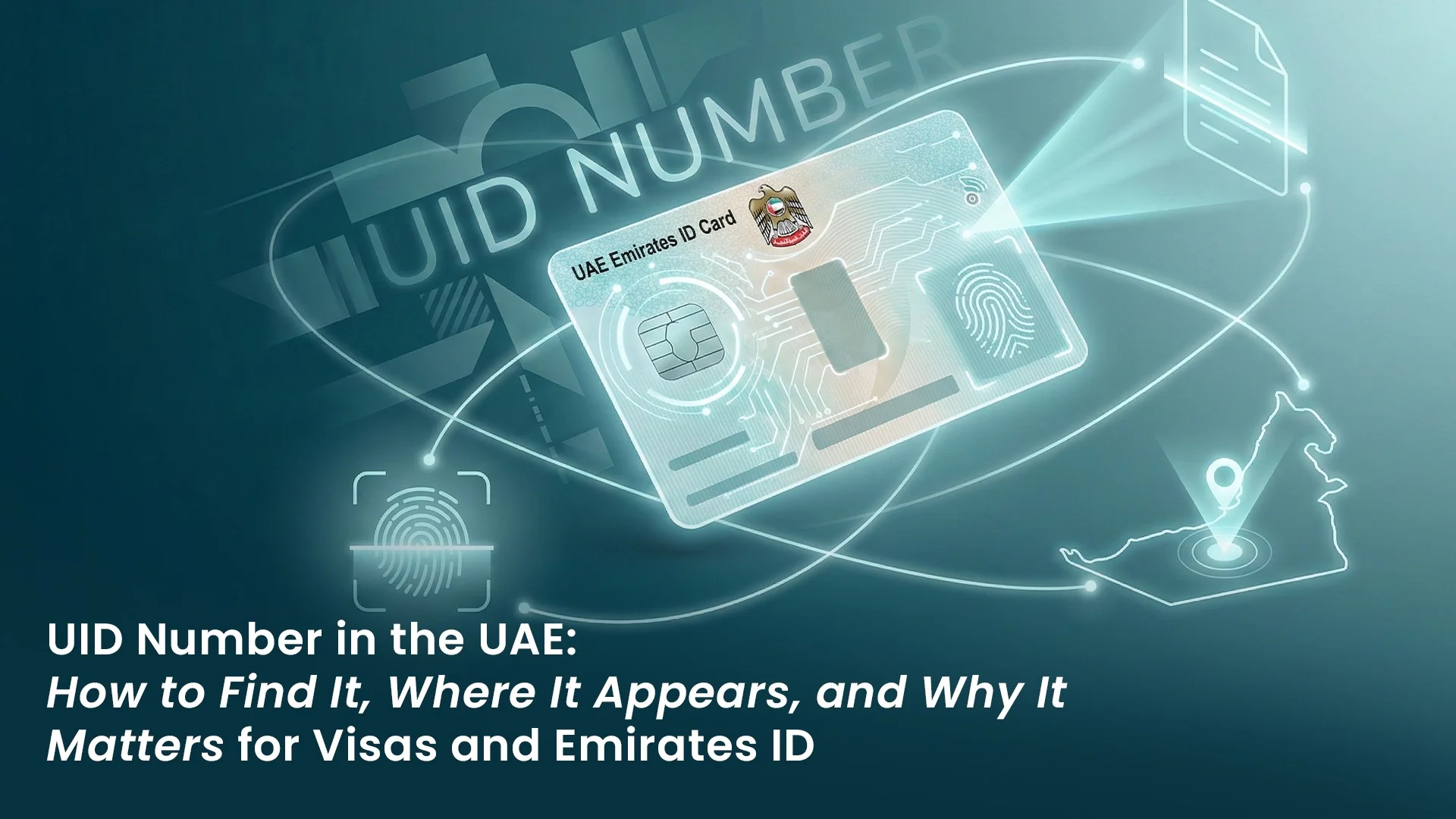VAT in the UAE: A Definitive Guide to Registration, Filing Deadlines, and Compliance
Recent Insights

Table of Contents
Introduction
Understand how to calculate 5% VAT, apply reverse charge mechanism (RCM), and meet FTA filing deadlines with expert guidance from UAE VAT consultants. VAT in the UAE: A Definitive Guide to Registration, Filing Deadlines, and Robust Compliance
The introduction of Value Added Tax (VAT in the UAE) in 2018 marked a major milestone in diversifying the nation’s economy. Governed by the Federal Tax Authority (FTA), this indirect consumption tax requires precise compliance from businesses operating across the UAE for both mainland and Free Zone entities. For business owners, accountants, and startups, mastering the lifecycle of VAT in the UAE, from registration and calculation to timely VAT return filing in UAE is vital to avoid penalties and maintain transparency. This guide provides expert insights into VAT rules in the UAE, outlining requirements, procedures, and compliance strategies.
1.Fundamentals of VAT in the UAE: Establishing the Core Framework
What is VAT in the UAE? Defining the Consumption Tax Model
What is VAT in the UAE? Value Added Tax is a consumption tax levied on most goods and services at each stage of the supply chain, collected by businesses on behalf of the government. Since its VAT implementation in the UAE in 2018, the standard VAT percentage in the UAE has been 5%, applied universally unless classified as zero-rated or exempt.
Understanding Input VAT and Output VAT (VAT Calculation in UAE)
The principle of VAT calculation in the UAE relies on Input VAT and Output VAT.
- Output VAT: Tax charged and collected by a registered business when selling taxable goods or services; this is a liability owed to the FTA.
- Input VAT: Tax paid to suppliers on purchases for business operations. It’s recoverable if related to making taxable supplies.
- Net VAT Due = Total Output VAT (Sales) – Total Recoverable Input VAT (Purchases).
- If Output exceeds Input, the difference is payable; if Input is greater, the business may claim a refund.
Differentiating Zero-Rated (0%) and Exempt Supplies
Compliance with VAT rules in the UAE depends on distinguishing these categories:
- Zero-Rated Supplies (0%): still reported on returns; Input VAT is recoverable. Examples: exports, international transport, investment-grade precious metals, first supply of new residential property within three years.
- Exempt Supplies: outside VAT’s scope; no VAT charged, and Input VAT on related costs is non-recoverable. Examples: subsequent sales or leases of residential property, certain financial services, and bare land.
An export-focused firm (zero-rated) can reclaim Input VAT, enhancing cash flow. Conversely, landlords of exempt property must absorb unrecoverable Input VAT, lowering margins.
2.Mastering VAT Registration: Requirements and Process
Determining VAT Registration Requirements in the UAE: Mandatory and Voluntary Thresholds
The FTA mandates registration based on taxable supplies and imports:
- Mandatory Registration: Required when taxable supplies and imports exceed AED 375,000 in the past 12 months or are expected to in 30 days.
- Voluntary Registration: Optional if taxable supplies, imports, or taxable expenses exceed AED 187,500.
- Non-Resident Requirement: Any non-resident making taxable supplies must register if no UAE entity is liable under RCM.
UAE VAT Registration Thresholds
| Registration Type | Threshold (AED) | Requirement | Eligibility Condition |
|---|---|---|---|
| Mandatory | 375,000 or more | Must register | Taxable supplies/imports exceed threshold in last 12 months or expected in 30 days. |
| Voluntary | 187,500 or more | Optional | Taxable supplies/imports or taxable expenses exceed thresholds. |
Specific Guidance for New Businesses and Voluntary Registration For VAT registration for a new company in the UAE, timing is strategic. Registration becomes mandatory once turnover passes AED 375,000.
Startups anticipating high initial expenses may register voluntarily to reclaim Input VAT on capital or setup costs, improving cash flow. However, firms with minimal turnover (below AED 187,500) risk rejection if future taxable revenue isn’t evidenced.
How to Register for VAT in UAE: Navigating the EmaraTax Portal
The process for how to register for VAT in the UAE is fully online via the FTA’s EmaraTax portal, constituting VAT online registration in UAE. Steps include creating a taxable-person profile, verifying turnover eligibility, completing the form, and receiving a Tax Registration Number (TRN) and certificate upon approval.
Essential Documents Required for VAT Registration in the UAE
- Valid Trade License
- Passports and Emirates IDs of owners/shareholders/managers
- Memorandum of Association (MOA) (if applicable)
- Full contact details and registered address
- Bank details (Account Name, Number, IBAN)
- Signed Turnover Declaration for the last 12 months
VAT Grouping and Free Zone Considerations
- VAT Grouping: Companies under common (95%) ownership may file a single VAT return in UAE, removing internal VAT on intra-group transactions.
- Free Zone Rules: VAT rules in UAE for Free Zones vary. Designated Zones are treated as outside the UAE VAT for goods if strict controls exist. All Free Zone firms meeting the AED 375,000 threshold must register. Services within or to the mainland are typically standard-rated at 5%. Proper classification demands expert VAT services in the UAE.
3.VAT Calculation, Accounting, and Tax Invoice Compliance
Practical Steps on How to Calculate VAT in the UAE
Ongoing VAT calculation in the UAE requires accurate tracking of Output and Input VAT. Input VAT may be claimed only on purchases tied to taxable (5% or 0%) supplies.
Essential VAT Invoice Format in the UAE Requirements
Two FTA-approved formats:
- Simplified Tax Invoice: For small retail sales. Must state “Tax Invoice,” supplier details + TRN, date, description, total, and VAT amount.
- Full Tax Invoice: For B2B or larger transactions. Requires:
- “Tax Invoice” title and unique number
- Supplier and recipient names, addresses, and TRNs
- Dates of issue and supply
- Itemized breakdown with rate and net amount
- Total VAT amount and any reverse-charge statement
Understanding the Capital Asset Scheme (CAS)
CAS ensures recovered Input VAT on high-value assets matches their actual taxable use.
Applies to assets ≥ AED 5 million (excl. VAT) with a long life of 10 years for buildings, 5 years for others.
If usage shifts from taxable to exempt, part of the Input VAT must be repaid over the adjustment period (e.g., converting a commercial space to residential rentals). CAS demands detailed annual records, crucial for mixed-use real estate firms.
4.The Reverse Charge Mechanism (RCM) and Complex Transactions
The reverse charge mechanism in UAE VAT (RCM) transfers VAT liability from the non-resident supplier to the UAE-registered buyer, preventing tax leakage on cross-border trades.
Applying RCM in UAE VAT on Imported Services and Goods
When a UAE-registered business imports goods or services from a non-registered foreign supplier, it self-accounts for VAT, declaring Output VAT and Input VAT simultaneously in Form 201, typically neutralizing cash flow impact.
Domestic RCM for Precious Metals and Electronic Devices
- Investment-Grade Gold: RCM in UAE VAT applies to B2B supplies of gold ≥ 99% purity. This gold VAT in the UAE rules avoids large VAT cash outflows.
- Electronic Devices: Under Cabinet Decision No. 91 (2023), RCM applies B2B if buyers provide written declarations confirming VAT registration and taxable use. Suppliers must retain these records; absent of documentation, standard 5% VAT is charged.
5.Sector-Specific VAT Implications: Property and Gold
VAT Treatment of Real Estate
Classification dictates liability:
- VAT on Commercial Property in UAE: 5% standard rate. Input VAT on building, maintenance, and utilities is recoverable. Buyers in secondary markets pay 5% directly to FTA via EmaraTax before title transfer.
- VAT on Residential Property in the UAE:
- First Supply: Zero-rated (0%) within 3 years of completion. Input VAT recoverable.
- Subsequent Supply: Exempt Input VAT not recoverable.
- Mixed-use projects must apportion Input VAT based on taxable vs. exempt use.
Rules for Precious Metals and Gold VAT in the UAE
The VAT on gold in the UAE supports its global trade status.
- Zero-Rating and RCM: Investment gold (≥ 99% pure) is zero-rated and subject to RCM.
- Standard Rate: Gold jewelry < 99% purity or B2C sales to unregistered buyers incur 5% VAT in the UAE. When making charges bundled, the RCM may still apply if the core supply qualifies.
VAT on Logistics and Courier Services in the UAE
- Domestic Deliveries: Standard 5% VAT.
- International Deliveries: Zero-rated (0%).
- Delivery charges follow the VAT treatment of the main supply.
Table 3: Summary of VAT Treatment for Specialized Sectors
| Supply Type | VAT Rate | Classification | Input VAT Recovery |
|---|---|---|---|
| General Goods/Services | 5% | Standard Rated | Fully Recoverable |
| Sale/Lease of Commercial Property | 5% | Standard Rated | Fully Recoverable |
| First Supply of Residential Property | 0% | Zero-Rated | Fully Recoverable |
| Subsequent Supply of Residential Property | N/A | Exempt | Not Recoverable |
| Investment-Grade Gold (99%+) B2B | 0% (RCM Applies) | Zero-Rated/RCM | Fully Recoverable |
| Domestic Courier Services | 5% | Standard Rated | Fully Recoverable |
| International Courier Services | 0% | Zero-Rated | Fully Recoverable |
6.VAT Return Filing in UAE: Deadlines and Procedure
Once registered, businesses enter the continuous compliance phase with accurate reporting and timely submission of VAT Return Form 201.
Determining Tax Periods and Compliance Calendar
The FTA assigns each registered business a tax period, generally monthly or quarterly. Most SMEs with annual taxable supplies below AED 150 million file quarterly (e.g., January–March, April–June).
Understanding VAT Filing Deadlines
The rule for VAT filing in UAE and payment is strict: both must be completed within 28 days of the end of the tax period. If the 28th falls on a weekend or holiday, the deadline moves to the next business day.
Table 2: Key VAT Filing and Payment Deadlines
| Action | Frequency | Deadline |
|---|---|---|
| VAT Return Submission (Form 201) | Typically, Quarterly | 28th day of the month after the period ends |
| VAT Payment | Per Tax Period | Same as VAT Return Submission Deadline |
| Voluntary Disclosure Submission | Upon error discovery | Within 20 business days of discovering the error |
Step-by-Step Guide: How to File VAT Return in UAE
- Preparation: Before logging in, finalise the VAT calculation in the UAE, ensuring Output VAT, Input VAT, zero-rated sales, and RCM obligations are accurate and supported by valid invoices.
- Access and Initiation: Log in to EmaraTax → “VAT” section → start Form 201. For VAT Groups, one representative files a single return.
- Data Entry: Enter figures for standard-rated sales, RCM output, and Input VAT recovery. The portal auto-calculates Net VAT Due.
- Submission and Payment: Verify all figures, complete the declaration, submit the return, and pay immediately to meet the 28-day rule.
Even with VAT grouping, all members share liability for late filing or payment penalties, underscoring the need for internal compliance controls.
7.Mitigating Risk: Penalties and Compliance Strategies
Non-compliance with VAT rules in the UAE triggers severe penalties. Awareness and proactive prevention are essential.
Understanding Administrative Penalties for VAT Delay in the UAE
- Late Submission: AED 1,000 for the first offence, AED 2,000 for subsequent ones within 24 months.
- Late Payment:
- 2% of unpaid tax immediately after the due date
- 4% added after 7 days
- 4% monthly thereafter
- Capped at 300% of the unpaid tax
Even short delays can become costly, emphasising the priority of VAT payment.
Utilising the Voluntary Disclosure (VD) Mechanism
Errors happen. FTA allows Voluntary Disclosure (Form 211) to correct prior returns.
Since 2023, almost all errors must be reported via VD within 20 business days of discovery.
Penalty outcomes:
- Before audit notice → 5% of unpaid tax
- After notice but before audit starts → 30%
- After audit or if FTA discovers an error → 50%
Essential Record-Keeping and Audit Preparation
All VAT records must be retained for 5 years, including tax invoices, Input VAT evidence, and zero/exempt supply justification. Failure results in fines (AED 10,000 for the first offence).
8.Partnering for Compliance: The Role of VAT Consultants in the UAE
Complex VAT rules in the UAE, especially around Free Zones, property, and RCM, often exceed in-house capabilities. Hiring VAT consultants in the UAE provides expertise, compliance, assurance, and time savings.
Comprehensive VAT Services in the UAE Offered by Experts
Professional VAT consultants in the UAE provide end-to-end VAT services in the UAE, including:
- Registration and Structuring: Guidance on how to register for VAT in the UAE, handling documentation for VAT registration requirements in UAE, and managing VAT Grouping.
- Filing and Calculation: Assuring precise VAT calculation in UAE (including how to calculate 5 VAT in UAE) and on-time VAT return filing in UAE to prevent penalties.
- Advisory and Optimisation: Expert input on VAT apportionment, reverse charge mechanism in UAE VAT, and correct supply classification for maximum tax efficiency.
- Audit and Dispute Support: Managing FTA audits, documentation, and representation in appeals.
- Training and Education: Offering VAT training courses in the UAE for staff to align with FTA updates.
Benefits of Outsourcing Compliance
Partnering with VAT consultants in UAE ensures compliance is handled by specialists while you focus on growth. Experts verify that all records, including the VAT invoice format in the UAE meet FTA standards, preventing costly VAT delay in UAE penalties.
Case Study: How DBTA Helped a Dubai Logistics Firm Move from Confusion to Compliance
A mid-sized logistics operator in Dubai came to DBTA, overwhelmed. They were new to VAT in UAE, uncertain about VAT registration for a new company in UAE, and frequently unsure how to issue a correct VAT invoice format in UAE for cross-border shipments. Their imports and re-exports also raised questions about the reverse charge mechanism in UAE VAT, which left the finance team worried about double-charging or missed credits.
DBTA started with a short, targeted audit of one week of hands-on review of sales, purchase, and import records. We prepared the full set of documents required for VAT registration in UAE, completed the VAT online registration in UAE process for the client, and fixed invoice templates so every outgoing bill met FTA rules. Next, we automated periodic checks to calculate VAT liabilities, so VAT calculation in UAE became an everyday, low-effort task rather than a month-end panic.
Within two filing cycles, the company was filing cleanly: VAT return filing in UAE happened on time, fines for VAT delay in UAE were avoided, and the team could clearly see tax positions per consignment. DBTA also ran two practical VAT training courses in UAE for the accounting and operations staff, so future issues like when to apply RCM in UAE VAT (reverse charge mechanism) on imports could be handled in-house. The outcome: predictable cash flow, fewer queries from the FTA, and a confident finance team.
How DBTA Helps Businesses Navigate VAT: Practical, End-to-End Support
Dubai Business and Tax Advisors (DBTA) work with companies at every stage, from startups registering their first business to established groups needing complex advisory. If you’re asking how to register for VAT in UAE, DBTA handles eligibility checks, gathers the VAT registration requirements in the UAE, and submits the form on the FTA portal, so you don’t lose time to error-filled applications. For new entities, our VAT registration services in the UAE include practical guidance on the VAT registration requirements in the UAE that often trips founders up.
Once registered, DBTA moves on to the day-to-day. We set up bookkeeping routines for reliable VAT filing in UAE, configure ledgers for automatic VAT calculation in the UAE, and create an FTA-ready VAT invoice format in the UAE that reduces reconciliation work. For importers and firms buying services from overseas, we explain and implement the reverse charge mechanism in UAE VAT, so you don’t overpay or miss reclaim opportunities.
Beyond compliance, we advise on industry-specific rules, for example, VAT on commercial property in UAE versus VAT on residential property in UAE, or special handling of VAT on gold in UAE / gold VAT in UAE for traders. Our team of VAT consultants in UAE also provides training sessions, tailored VAT services in UAE, and clear playbooks so your staff can confidently manage returns and avoid VAT delays in the UAE penalties. In short: DBTA makes VAT practical and manageable, letting you focus on growing the business.
Conclusion: Your Actionable VAT Compliance Checklist
Maintaining compliance with VAT rules in the UAE demands diligence, accuracy, and expert oversight. Late payments can trigger crippling fines; thus, tax obligations must be prioritised.
Key actions for businesses:
- Confirm Status & Documentation: Monitor sales vs. VAT registration requirement in UAE (AED 375,000) and ensure invoices meet FTA’s VAT invoice format in UAE.
- Meet Deadlines: Prioritise VAT return filing in the UAE and payment within 28 days to avoid the severe penalties for VAT delay in the UAE.
- Handle Complex Transactions: Keep clear RCM documentation, including supplier declarations for electronic device trades.
- Classify Correctly: For property or gold, ensure correct VAT classification (standard, zero-rated, or exempt) for maximum Input VAT recovery.
- Use Experts: Partner with experienced VAT consultants in the UAE for grouping, CAS adjustments, and audits to convert risk into predictable compliance.
FAQs
VAT in the UAE (Value Added Tax) is a 5% indirect tax applied to most goods and services. Introduced in 2018, it helps diversify the country’s economy beyond oil revenue. Businesses collect VAT from customers on behalf of the government and remit it to the Federal Tax Authority (FTA). Certain sectors, like education and healthcare, may qualify for exemptions or zero-rated treatment under VAT rules in the UAE.
Businesses must register for VAT in the UAE if their taxable supplies and imports exceed AED 375,000 annually. Companies with a turnover above AED 187,500 can opt for voluntary registration. New startups or expanding entities should review their eligibility regularly. Both mainland and Free Zone companies are covered, though Free Zone entities in designated areas may have specific exceptions under VAT registration requirements in UAE set by the FTA.
To complete VAT registration in UAE, you’ll need trade license copies, passport and Emirates ID of owners, contact information, bank account details, proof of business address, and financial records such as turnover declarations. Startups must also submit contracts or invoices to demonstrate taxable activity. Having these documents required for VAT registration in UAE ready helps avoid processing delays and ensures quick approval from the Federal Tax Authority.
To register for VAT in UAE, visit the FTA eServices portal, create an account, and fill in business details such as activities, turnover, and ownership information. Upload the documents required for VAT registration in UAE, then submit your application online. The FTA reviews it and issues a Tax Registration Number (TRN) once approved. Many companies use professional VAT registration services in UAE to ensure accuracy and faster completion.
VAT filing in UAE is typically done every quarter, though some large businesses file monthly. The VAT return filing in UAE must be completed within 28 days after the end of each tax period. For example, if your quarter ends in March, the return is due by April 28. Missing deadlines may result in penalties for VAT delay in UAE, so timely submission and organised bookkeeping are crucial.
To file VAT returns in UAE, log in to the FTA eServices portal, open your VAT return form, and enter sales, purchases, and import details. The system automatically calculates the VAT payable or refundable. Review all figures carefully before submitting. Payments can be made online via the FTA’s approved channels. Many firms rely on VAT consultants in UAE to manage VAT return filing in UAE and maintain full compliance.
Penalties for VAT non-compliance in UAE can be severe. Late registration may attract a fine of AED 10,000, while delayed or incorrect filing can incur additional penalties. Inaccurate recordkeeping or unpaid VAT may lead to daily fines and account suspension. Businesses are encouraged to work with VAT services in UAE or tax experts to prevent errors and avoid unnecessary VAT delay in UAE fines under FTA regulations.
To perform VAT calculation in UAE, multiply the product or service price by 5%, the current VAT percentage in UAE. For instance, if an item costs AED 1,000, the VAT amount is AED 50, bringing the total to AED 1,050. Businesses must also account for input VAT (on purchases) and output VAT (on sales). Regularly reviewing your how to calculate VAT in UAE ensures accurate returns and compliance.
Tourists can claim a VAT refund in the UAE through the official “Tax Refund for Tourists Scheme.” When shopping, ensure that the retailer is registered under the program and provides a tax invoice with a QR code. Before leaving the UAE, present your purchases and receipts at the airport’s Planet Tax Refund counter. Refunds are processed instantly via cash or card. This scheme encourages tourism while keeping VAT implementation in UAE transparent.
Yes, but it depends on timing and eligibility. Businesses can usually claim VAT in UAE on valid invoices issued within the previous tax period, provided those expenses directly relate to taxable supplies. However, invoices older than the registration date or missing key details may not qualify. Keeping organised records and consulting VAT consultants in the UAE helps confirm which old invoices meet the FTA’s VAT rules in the UAE for recovery.
Latest news & articles

LLC Trade License Cost in Dubai (2026): Full Breakdown of Fees, Approvals, and Renewal Charges
Read More »
Living Expenses in Dubai (2026): Real Monthly Budgets for Singles, Couples, and Families
Read More »
UID Number in the UAE: How to Find It, Where It Appears, and Why It Matters for Visas and Emirates ID
Read More »About the Author:
AURANGZAIB CHAWLA
As CEO of DBTA, Aurangzaib Chawla advises globally mobile businesses and individuals on cross-border tax planning and structuring. With expertise spanning the UK, UAE, and wider GCC, Zaib helps clients minimise double taxation, protect assets, and achieve long-term financial efficiency while staying fully compliant.
Planning to launch in Dubai or the UAE?
Let’s talk about how to structure your business for growth the smart, compliant, and tax-efficient way
About the Author:
AURANGZAIB CHAWLA

As CEO of DBTA, Aurangzaib Chawla advises globally mobile businesses
and individuals on cross-border tax planning and structuring. With expertise spanning the UK, UAE, and wider GCC, Zaib helps clients minimise double taxation, protect assets, and achieve long-term financial efficiency while staying fully compliant.
Planning to launch in Dubai or the UAE?
Let’s talk about how to structure your business for growth the smart, compliant, and tax-efficient way.


